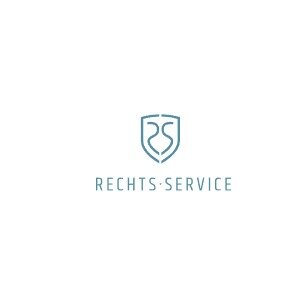Best Conveyancing Lawyers in Switzerland
Share your needs with us, get contacted by law firms.
Free. Takes 2 min.
Free Guide to Hiring a Real Estate Lawyer
Or refine your search by selecting a city:
List of the best lawyers in Switzerland
About Conveyancing Law in Switzerland
Conveyancing in Switzerland refers to the legal process of transferring property ownership from one party to another. This process includes all legal formalities, documentation, and verifications needed for a secure and binding real estate transaction, which could involve residential, commercial, or land property. Swiss law ensures that all real estate transactions are executed with legal certainty, protecting the rights and interests of both buyers and sellers.
Why You May Need a Lawyer
Purchasing or selling property is usually a significant financial transaction with potential legal complexities. A lawyer can help you avoid costly mistakes and protect your interests during conveyancing. Common situations where you may require legal help include:
- Reviewing or drafting property contracts
- Verifying property titles and encumbrances
- Ensuring compliance with zoning and land-use regulations
- Dealing with cross-border property transactions
- Managing inheritance or divorce-related property transfers
- Handling issues of co-ownership or property disputes
- Understanding and fulfilling tax-related obligations
Local Laws Overview
Conveyancing in Switzerland is largely governed at the cantonal level, with national legislation such as the Swiss Civil Code also playing a key role. Here are some important aspects of Swiss conveyancing law:
- Every transfer of real estate ownership must be executed in writing and authenticated by a notary public.
- The transaction is only legally binding upon entry in the official land registry.
- Legal due diligence is essential to uncover mortgages, easements, or other burdens on the property.
- Foreigners face certain restrictions under the Lex Koller Act, which regulates non-resident ownership of Swiss property.
- Each canton may have different rules regarding taxes, notary fees, and procedures.
Frequently Asked Questions
What is the role of the notary in Swiss conveyancing?
The notary is a legal professional responsible for authenticating real estate contracts and ensuring all necessary formalities are met. The notary also registers the change of ownership in the land registry.
Can foreigners buy property in Switzerland?
Foreigners can purchase certain types of property in Switzerland, but there are strict regulations under the Lex Koller law regarding non-resident ownership. Consult a lawyer for detailed advice on eligibility and restrictions.
What taxes are involved when buying property?
Property purchases incur various taxes, such as property transfer tax, notary fees, and registration fees. These can vary significantly between cantons.
How long does the conveyancing process take?
The process may take anywhere from a few weeks to several months, depending on the complexity of the transaction and the efficiency of the involved authorities.
Is a property purchase agreement valid without notarization?
No, a property purchase agreement is not legally binding unless it is notarized by an authorized notary public in Switzerland.
What is the Swiss land registry?
The land registry is an official record maintained by each canton detailing the ownership, encumbrances, and characteristics of real estate properties. Registration is required to effectuate any change of ownership.
Are there any hidden fees?
Buyers should be aware of notary fees, land registry fees, and various administrative costs. Legal advice can help clarify the total expected expenses.
Can I purchase property jointly with another person?
Yes, Swiss law allows for joint purchases. The type of co-ownership, rights, and obligations should be clearly set out in the contract and registered accordingly.
Do I need to be present in Switzerland for conveyancing?
While personal presence is often advisable, it may be possible to appoint a representative through a power of attorney to handle legal formalities on your behalf.
What happens if there is a dispute during conveyancing?
If a dispute arises, parties are encouraged to seek amicable settlement, but legal remedies, including mediation or court proceedings, are available if necessary. A lawyer’s advice is crucial in these cases.
Additional Resources
If you need further information on conveyancing in Switzerland, consider consulting these resources and organizations:
- Cantonal Notary Offices
- Swiss Bar Association (Fédération Suisse des Avocats)
- Cantonal Land Registry Offices
- Federal Office of Justice
- Swiss Association of Real Estate Professionals
Next Steps
If you are planning to buy or sell property in Switzerland:
- Collect all relevant property documents and information
- Reach out to a qualified Swiss conveyancing lawyer
- Arrange for a pre-transaction consultation to assess your situation and risks
- Understand the required documentation, costs, and timelines specific to your canton
- Follow your lawyer’s guidance throughout due diligence, contract preparation, notarization, and registration
Starting with professional legal advice ensures your rights are protected and the conveyancing process runs smoothly.
Lawzana helps you find the best lawyers and law firms in Switzerland through a curated and pre-screened list of qualified legal professionals. Our platform offers rankings and detailed profiles of attorneys and law firms, allowing you to compare based on practice areas, including Conveyancing, experience, and client feedback.
Each profile includes a description of the firm's areas of practice, client reviews, team members and partners, year of establishment, spoken languages, office locations, contact information, social media presence, and any published articles or resources. Most firms on our platform speak English and are experienced in both local and international legal matters.
Get a quote from top-rated law firms in Switzerland — quickly, securely, and without unnecessary hassle.
Disclaimer:
The information provided on this page is for general informational purposes only and does not constitute legal advice. While we strive to ensure the accuracy and relevance of the content, legal information may change over time, and interpretations of the law can vary. You should always consult with a qualified legal professional for advice specific to your situation.
We disclaim all liability for actions taken or not taken based on the content of this page. If you believe any information is incorrect or outdated, please contact us, and we will review and update it where appropriate.
Browse conveyancing law firms by city in Switzerland
Refine your search by selecting a city.













